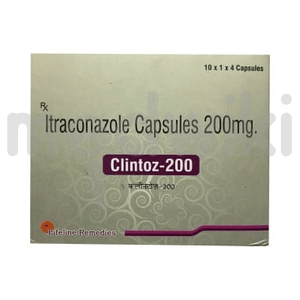extroger
Introduction to extroger
Extroger is a medication used to treat a variety of fungal infections. It is particularly effective against infections caused by fungi, which can affect different parts of the body. Extroger is known for its ability to combat stubborn fungal infections and is often prescribed when other treatments have failed.
Composition of extroger
Extroger contains the active ingredient Itraconazole, which is an antifungal agent. Itraconazole works by disrupting the production of ergosterol, a key component of fungal cell membranes, leading to the death of the fungal cells.
Uses of extroger
- Treatment of Aspergillosis, a type of lung infection caused by Aspergillus fungi.
- Management of Histoplasmosis, an infection caused by inhaling fungal spores.
- Effective against Blastomycosis, a fungal infection affecting the lungs and other organs.
- Used for Onychomycosis, a fungal infection of the nails.
- Treats Candidiasis, a yeast infection affecting various body parts.
- Helps in treating Dermatophyte infections like athlete's foot and ringworm.
Side effects of extroger
Common side effects:
- Nausea
- Headache
- Abdominal pain
- Diarrhea
- Rash
- Dizziness
Serious side effects:
- Liver toxicity
- Heart failure
- Severe allergic reactions
Precautions of extroger
Before taking extroger, it is important to inform your doctor if you have any history of hypersensitivity to the drug or other azole antifungals. It should not be used in individuals with active liver disease, heart failure, or severe cardiac conditions. Caution is advised for those with kidney disease or a history of arrhythmias.
How to Take extroger
- Follow the dosage prescribed by your doctor, which may vary based on the condition being treated.
- For fungal infections like Onychomycosis, the typical dose is 200 mg once daily or 100 mg twice daily.
- For systemic infections, higher doses may be prescribed.
- Take extroger with food to improve absorption.
Conclusion of extroger
Extroger is a powerful antifungal medication that can effectively treat a range of fungal infections. While it is generally well-tolerated, it is important to be aware of potential side effects and take necessary precautions. Always follow your healthcare provider's instructions for the best results.

Similar Medicines
More medicines by Exodrug
Available in 2 variations

Extroger 200mg Capsule
strip of 10 capsules

Extroger 100mg Capsule
strip of 10 capsules











.svg)
